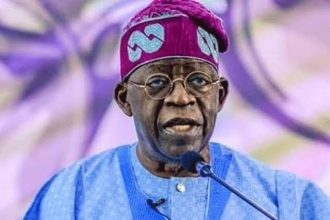The Federal Government and the Lagos State Government have sounded a loud and clear message: Nigeria must start producing more and importing less if the economy is going to survive and thrive.
This strong call for action came on Monday at the 16th National Council on Industry, Trade and Investment meeting in Lagos, where leaders, entrepreneurs, and economic thinkers gathered under the theme “Accelerating Diversification to Rebuild Prosperity.”
Their message was simple but urgent—it’s time to put Made-in-Nigeria products first, support small businesses, and move away from the country’s heavy dependence on oil.
Lagos Commissioner for Commerce, Cooperatives, Trade and Investment, Folasade Ambrose, summed up the challenge facing Nigeria: “We’re at a crossroads. The global economy is changing, and if we keep relying on oil, we’re setting ourselves up for failure.”
She highlighted that the key to building a stable future lies in supporting local producers and encouraging Nigerians to buy local goods. “We must build industries that can survive shocks, create jobs, and make us self-sufficient.”
The Commissioner also emphasized the importance of supporting SMEs, which are often called the “lifeblood of the economy.” From street vendors to small manufacturers, these businesses power everyday commerce and innovation—but they need better access to financing, markets, and infrastructure.
Speaking on behalf of the Federal Government, the Ministry’s Permanent Secretary, Nura Rimi, stressed that the world’s fastest-growing economies have something in common: they all invest in manufacturing.
He urged stakeholders to support local industries through digital reforms, easier business registration processes, and stronger financing models. “The faster we build a financial system that actually supports small businesses, the better our chances at long-term growth,” Rimi said.
But perhaps the most striking comments came from economist Abiodun Adesire, who challenged Nigerians to rethink their habits and their expectations.
“No country in the world became great by depending on imports,” he said. “If Nigeria wants to escape the cycle of economic pain every time oil prices fall, we need to produce our own goods—everything from food to medicine to electronics.”
He warned that the failure to revive manufacturing would leave Nigeria permanently vulnerable, especially when global supply chains are under strain.
Adesire also stressed the need to create a friendly environment for investors, tackle issues like power supply and infrastructure, and make Nigeria a place where industries can grow without being strangled by bureaucracy.
The big takeaway from the event? Nigeria’s future depends on how well it can support its own economy from the inside out. That means prioritizing local goods, boosting SMEs, revamping infrastructure, and adopting policies that reward innovation and resilience.
From government officials to private sector leaders, there was a unified agreement: it’s time for Nigerians to take pride in what they produce—and to support homegrown businesses as a matter of national survival and prosperity.





